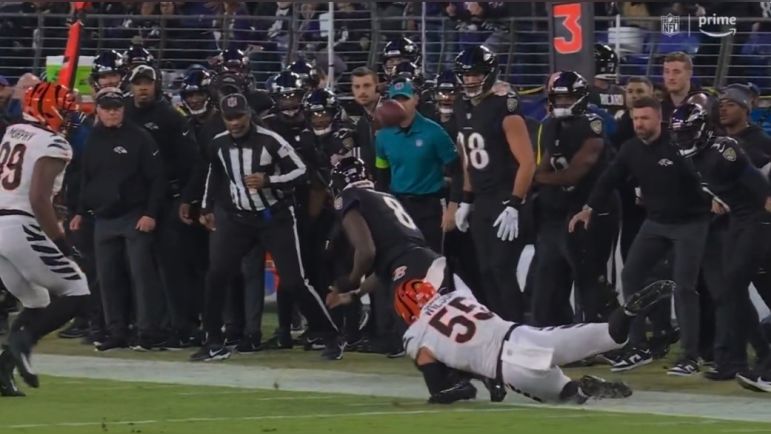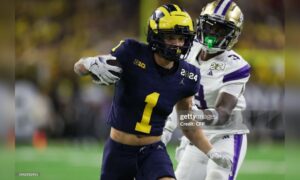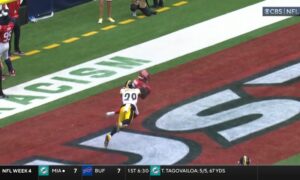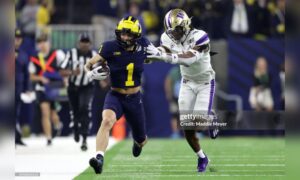The NFL has banned the hip-drop tackle after a number of injuries arose from the play over the last two seasons, according to NFL Media’s Ian Rapoport. The league’s Competition Committee unanimously voted to ban the play.
The tackle occurs when a player is trying to bring down their opponent from behind, and despite objections from the NFLPA, the NFL and Competition Committee agreed to ban the play. Tom Pelissero of NFL Media said the expectation is there will be more fines than flags initially as the league and coaches adjust to getting rid of the tackling technique.
The NFL confirmed late Monday morning that the hip-drop tackle has been banned among other rule changes for the 2024 season.
Last month, NFL Media’s Judy Battista said the Competition Committee was aligned on eliminating the play, and with the annual NFL Owners Meetings underway, it appears that will be the case.
Pittsburgh Steelers head coach Mike Tomlin is obviously a member of the Competition Committee, so he had a hand in the play no longer being allowed. It will make things more difficult for the defense to bring a player down from behind, but the move should reduce lower-body injuries from players getting their feet or legs trapped underneath them.
Former NFL DE J.J. Watt, brother of Steelers OLB T.J. Watt, isn’t a fan of the rule change, tweeting “just fast forward to the belts with flags on them.”
The most notable example of a hip-drop tackle causing injury last season came when Cincinnati Bengals LB Logan Wilson tackled Baltimore Ravens TE Mark Andrews, which caused Andrews to suffer a serious ankle injury. However, Andrews said he didn’t blame Wilson for the play and called it an “unfortunate event.”
Last week, the NFLPA issued a statement saying it was against any ban of a hip-drop tackle, writing that “we cannot support a rule change that causes confusion for us as players, for coaches, for officials, and especially, for fans.”
The hip-drop proposal included language that defined the tackle as a defender swiveling and dropping his lower body and landing on his opponent’s legs. The play will cause a 15-yard penalty and a first down if it’s flagged in a game. It’s important to note that it obviously doesn’t prevent any tackle from behind, but rather the swivel of the tackler’s legs that could cause players to get tangled up and pose a higher risk of injury.
We’ll see how prevalent the rule change becomes, but it definitely will force defenses to adjust their technique and ways to bring down players from behind.








